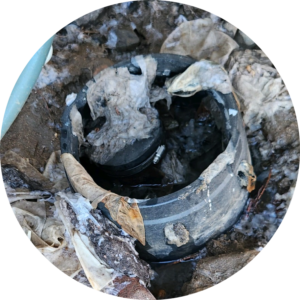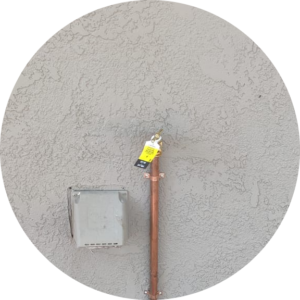Here are some signs that may indicate gas pipe problems:
Unusual Smell:
Rotten Egg Odor: Natural gas is odorless, but gas companies add a distinctive rotten egg smell (mercaptan) for easy detection. If you notice this smell, it could indicate a gas leak.
Hissing Sounds:
It might be a gas leak if you hear hissing or whistling near gas lines or appliances.
Dead Plants:
Discolored or dying plants near the gas line might indicate a leak affecting the surrounding soil.
Physical Symptoms:
Symptoms like dizziness, nausea, fatigue, or headaches could be signs of gas exposure. If multiple people in a home experience these symptoms, it’s essential to investigate.
Pilot Light Issues:
The pilot light on gas appliances should burn blue. If it’s yellow or goes out frequently, it might signal a gas problem.
Higher Gas Bills:
An unexplained increase in your gas bills might indicate a leak or inefficient gas appliances.
Dirt or Water Blowing:
If you observe dirt or water blowing near a gas line, it could be a sign of a leak.
Visible Damage:
Look for physical damage to gas lines, such as corrosion, rust, or dents. Damaged pipes can lead to leaks.
Persistent Bubbles:
Apply a soap solution to suspected areas. Persistent bubbles indicate gas escaping.
Gas Detection Devices:
Install gas detectors in your home. These devices can alert you to the presence of gas.
If you suspect a gas leak, evacuate the area immediately, call your gas company’s emergency line, and do not operate any electrical devices or switches. Gas leaks are serious safety hazards, and professional assistance is essential for detection and repair.




